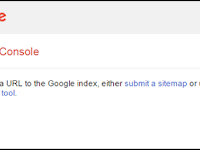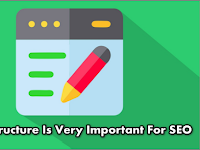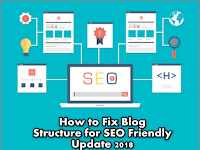How to Start a Successful Career in SEO - Do you want to start an SEO career? I’ve been working in the SEO industry since 2002 and in this post, I will help you decide if SEO is a career choice for you. Search Engine Optimization or SEO is not something new. It’s been around for almost two decades but it’s only in the last few years that started gaining ground as a real profession.
Today, Universities around the World are offering formal courses on Digital Marketing and there are plenty of online options to get SEO training and become certified. If you want to break into a career in SEO, there are a number of factors to consider besides getting the right training. The job role of an SEO professional is not merely to apply in practice the theories learned through a course, but is much more than that.
So, if it’s not only a matter of getting the right training, what other skills should an SEO expert have?
The short answer is a diverse set of skills which includes analytical, communication and development skills (you don’t have to be a developer but you need to understand basic HTML code). The path to follow to get a job in digital marketing and start a successful career in SEO can be summarized in these 10 steps.
Towards the end of this post, you can also find answer to popular questions about SEO Career:
Before even thinking of applying for any SEO related job, you need to make sure that you have the necessary SEO knowledge. Spend some time familiarizing yourself with how search engines work, after all this is what SEO is all about; to optimize a website for search engines so that it ranks higher in the search results.
Get to know the different components that make up the SEO process like technical SEO, on-Page SEO and Off-Page SEO. Make sure that you can understand the terminology of SEO including key phrases like Keyword Research, link building, backlinks, white hat SEO, black hat SEO and any others terms you read in SEO related topics.
One of the most common SEO tasks is to optimize the page title, meta description, headings and content of a page. You cannot do this successfully if your writing skills are not good. If you plan to work with US or UK customers and English is not your fist language, you need to take a course of find other ways to improve your English writing skills. It may sound like an optional step for now but as soon as you start doing SEO copywriting work, you will realize its importance.
You don’t have to be a developer to become an SEO but you need to have some basic development skills. You should be able to read and understand HTML code, know how a website is structured and understand the role of JavaScript in the web development process.
You need to possess the ability to work with popular CMS like WordPress to edit the titles and descriptions of a page as well as other SEO related settings (permalinks, comment settings, sitemaps, etc.). Part of your job responsibilities will be to guide developers to make SEO related changes to a website so you need to know what to ask for.
For any SEO work you do, you will have to prepare reports for the client or your boss. A good SEO report combines information from different sources like Google search console, Google analytics, and SEMRUSH. It is important that you have the necessary skills to read, interpret and present this information in a meaningful format. Knowing how to use tools like Excel and Google sheets is a must.
The right SEO tools can make your life easier, provided that you know how to use them correctly. Besides being familiar with the absolute essentials (Google search console and Google analytics), you also need to learn how to use and configure other SEO tools like:
Yoast SEO – The most popular SEO plugin in the market. Knowing how to use Yoast SEO does not make you a professional SEO but you cannot be a pro if you don’t know the ins and outs of Yoast SEO.
SEMRUSH – This is by far my recommended SEO tool. It’s a tool I use on a daily basis for many tasks including, keyword research, link building, PPC campaigns, competitor analysis and many more.
Chrome Developer Tools – A set of developer tools built into Chrome. You can use them to inspect the HTML code of a page.
Other SEO Tools provided by Google like Page speed insights and Lighthouse.
Google has a set of rules, known as the Google Webmaster Guidelines. In this document, they explain everything there is to know about their quality standards and rules. SEO can sometimes be tricky and if you are not familiar with Google guidelines, you may do something that can get your website (or worse the client’s website) penalized and this means loss of rankings and traffic. This is also something that you may be asked in an interview so spend some time to read and understand the guidelines.
I have mentioned above that the job role of an SEO is not limited to knowing the SEO concepts and theory but it’s mostly practical. With or without a formal education, with or without an SEO certificate, in order to become a successful SEO professional, you need to practice SEO and prove to your future clients or employers that you can improve the rankings of a website in the SERPS.
A company or SEO agency will hire you not because of your qualifications but for your experience and abilities to increase their rankings, get them more organic traffic and customers. The best way to build your SEO experience and learn SEO is to practice SEO. If you don’t have a website yet, then this is your first step.
Pick up a niche, do your keyword research and start a website asap. Work on your website’s SEO and try to get high rankings for as many keywords as you can. There will be obstacles in the way, that’s for sure. Don’t give up, learn from your mistakes and keep working until you get some decent results (in terms of organic traffic). This can be your passport to secure your first client or your first job as an SEO.
Search engine marketing is not just about SEO, it’s also about Paid Search Advertising and Google Ads is the most popular PPC platform in the market. While your main focus is to learn SEO, knowing how Google Ads work, will help you get a better understanding of how Google works.
In a typical search results page, Google Ads are shown on top and below the organic results and it’s good to know what factors and under what conditions an ad can appear higher than the organic results for a given keyword.
SEO and Google Ads work great together and it’s also another opportunity for you to prove your expertise and offer a wide range of digital marketing services to your clients.
I mentioned in step 6 that you need to build your SEO experience by building and doing SEO work on your own website first. Once you feel confident that you know what you are doing and already have some good results, it’s time to take it a step further by acquiring your first client.
Your primary goal at this stage is to test your skills in a real-life scenario and enrich your CV with hands-on experience. Go to job portals like upwork, fiverr and peopleperhour and register for a freelancer account. These portals have hundreds of SEO jobs listed on a daily basis. Filter the requests and apply for SEO jobs you can execute based on your current knowledge and experience. Keep your prices low to secure a couple of contracts.
Remember you goal at this stage is not to make a living as an SEO freelancer, but to gain working experience and get ready for upcoming job interviews.
Once you have your SEO skills built up and some prove about your working experience, the next step is to prepare for the SEO interview. As an SEO agency we have gone through the process of hiring SEO’s a number of times in the past and we are always looking for specific things.
Most probably other agencies look for the same things, so follow the tips below to increase your chances of securing your first job as an SEO. When you are asked to introduce yourself, make sure that you mention examples of SEO work you did for clients (or your own website). This is more important than anything else. Then you can mention about any SEO Certifications or SEO courses you followed.
Be prepared to answer questions about Google Webmaster Guidelines and questions like:
“Do you need links to rank a website high in the results?”
“How would you optimize a page for a particular keyword”.
“How long does it take for SEO to Work?”
It is, if you are really passionate about the Internet. If you don’t have a true passion about the Internet and digital marketing in general, then becoming an SEO is not a good career choice.
Advantages of working in the SEO industry:
Disadvantages:
Here you have it. This pretty much summarizes what it takes to start a career in SEO. If you have any specific questions let me know in the comments and I will do my best to answer them.
Today, Universities around the World are offering formal courses on Digital Marketing and there are plenty of online options to get SEO training and become certified. If you want to break into a career in SEO, there are a number of factors to consider besides getting the right training. The job role of an SEO professional is not merely to apply in practice the theories learned through a course, but is much more than that.
10 Steps to Start a Career in SEO
So, if it’s not only a matter of getting the right training, what other skills should an SEO expert have?
The short answer is a diverse set of skills which includes analytical, communication and development skills (you don’t have to be a developer but you need to understand basic HTML code). The path to follow to get a job in digital marketing and start a successful career in SEO can be summarized in these 10 steps.
Towards the end of this post, you can also find answer to popular questions about SEO Career:
- Is SEO a good career choice?
- What’s the next step to advance your SEO Career?
- How much money can you make as an SEO professional?
1. Build up your SEO skills
Before even thinking of applying for any SEO related job, you need to make sure that you have the necessary SEO knowledge. Spend some time familiarizing yourself with how search engines work, after all this is what SEO is all about; to optimize a website for search engines so that it ranks higher in the search results.
Get to know the different components that make up the SEO process like technical SEO, on-Page SEO and Off-Page SEO. Make sure that you can understand the terminology of SEO including key phrases like Keyword Research, link building, backlinks, white hat SEO, black hat SEO and any others terms you read in SEO related topics.
2. Improve your writing skills
One of the most common SEO tasks is to optimize the page title, meta description, headings and content of a page. You cannot do this successfully if your writing skills are not good. If you plan to work with US or UK customers and English is not your fist language, you need to take a course of find other ways to improve your English writing skills. It may sound like an optional step for now but as soon as you start doing SEO copywriting work, you will realize its importance.
3. Acquire basic development skills
You don’t have to be a developer to become an SEO but you need to have some basic development skills. You should be able to read and understand HTML code, know how a website is structured and understand the role of JavaScript in the web development process.
You need to possess the ability to work with popular CMS like WordPress to edit the titles and descriptions of a page as well as other SEO related settings (permalinks, comment settings, sitemaps, etc.). Part of your job responsibilities will be to guide developers to make SEO related changes to a website so you need to know what to ask for.
4. Build up your Analytical Skills
For any SEO work you do, you will have to prepare reports for the client or your boss. A good SEO report combines information from different sources like Google search console, Google analytics, and SEMRUSH. It is important that you have the necessary skills to read, interpret and present this information in a meaningful format. Knowing how to use tools like Excel and Google sheets is a must.
5. Learn how to use SEO tools
The right SEO tools can make your life easier, provided that you know how to use them correctly. Besides being familiar with the absolute essentials (Google search console and Google analytics), you also need to learn how to use and configure other SEO tools like:
Yoast SEO – The most popular SEO plugin in the market. Knowing how to use Yoast SEO does not make you a professional SEO but you cannot be a pro if you don’t know the ins and outs of Yoast SEO.
SEMRUSH – This is by far my recommended SEO tool. It’s a tool I use on a daily basis for many tasks including, keyword research, link building, PPC campaigns, competitor analysis and many more.
Chrome Developer Tools – A set of developer tools built into Chrome. You can use them to inspect the HTML code of a page.
Other SEO Tools provided by Google like Page speed insights and Lighthouse.
6. Become an expert in Google Webmaster Guidelines
Google has a set of rules, known as the Google Webmaster Guidelines. In this document, they explain everything there is to know about their quality standards and rules. SEO can sometimes be tricky and if you are not familiar with Google guidelines, you may do something that can get your website (or worse the client’s website) penalized and this means loss of rankings and traffic. This is also something that you may be asked in an interview so spend some time to read and understand the guidelines.
7. Get practical, build you SEO experience
I have mentioned above that the job role of an SEO is not limited to knowing the SEO concepts and theory but it’s mostly practical. With or without a formal education, with or without an SEO certificate, in order to become a successful SEO professional, you need to practice SEO and prove to your future clients or employers that you can improve the rankings of a website in the SERPS.
A company or SEO agency will hire you not because of your qualifications but for your experience and abilities to increase their rankings, get them more organic traffic and customers. The best way to build your SEO experience and learn SEO is to practice SEO. If you don’t have a website yet, then this is your first step.
Pick up a niche, do your keyword research and start a website asap. Work on your website’s SEO and try to get high rankings for as many keywords as you can. There will be obstacles in the way, that’s for sure. Don’t give up, learn from your mistakes and keep working until you get some decent results (in terms of organic traffic). This can be your passport to secure your first client or your first job as an SEO.
8. Become Google Ads Certified
Search engine marketing is not just about SEO, it’s also about Paid Search Advertising and Google Ads is the most popular PPC platform in the market. While your main focus is to learn SEO, knowing how Google Ads work, will help you get a better understanding of how Google works.
In a typical search results page, Google Ads are shown on top and below the organic results and it’s good to know what factors and under what conditions an ad can appear higher than the organic results for a given keyword.
SEO and Google Ads work great together and it’s also another opportunity for you to prove your expertise and offer a wide range of digital marketing services to your clients.
9. Get your first client
I mentioned in step 6 that you need to build your SEO experience by building and doing SEO work on your own website first. Once you feel confident that you know what you are doing and already have some good results, it’s time to take it a step further by acquiring your first client.
Your primary goal at this stage is to test your skills in a real-life scenario and enrich your CV with hands-on experience. Go to job portals like upwork, fiverr and peopleperhour and register for a freelancer account. These portals have hundreds of SEO jobs listed on a daily basis. Filter the requests and apply for SEO jobs you can execute based on your current knowledge and experience. Keep your prices low to secure a couple of contracts.
Remember you goal at this stage is not to make a living as an SEO freelancer, but to gain working experience and get ready for upcoming job interviews.
10. Prepare for the SEO interview
Once you have your SEO skills built up and some prove about your working experience, the next step is to prepare for the SEO interview. As an SEO agency we have gone through the process of hiring SEO’s a number of times in the past and we are always looking for specific things.
Most probably other agencies look for the same things, so follow the tips below to increase your chances of securing your first job as an SEO. When you are asked to introduce yourself, make sure that you mention examples of SEO work you did for clients (or your own website). This is more important than anything else. Then you can mention about any SEO Certifications or SEO courses you followed.
Be prepared to answer questions about Google Webmaster Guidelines and questions like:
“Do you need links to rank a website high in the results?”
“How would you optimize a page for a particular keyword”.
“How long does it take for SEO to Work?”
Is SEO a good career choice?
It is, if you are really passionate about the Internet. If you don’t have a true passion about the Internet and digital marketing in general, then becoming an SEO is not a good career choice.
Advantages of working in the SEO industry:
- You can start your own business as a freelancer or SEO agency.
- You can set your own hours.
- You can work from home or remotely.
- It’s a great opportunity to meet people from all over the World.
- You can work as an SEO in an agency. There are many job opportunities available.
- As the Internet grows, the need for all companies to hire an SEO, will become more important.
Disadvantages:
- SEO is a fast-changing industry and while for some this is good and exciting, for people that are difficult to adopt to changes, it will be tiresome.
- Clients are inpatient and sometimes their expectations are over and above what it can realistically be achieved for their websites.
- Sometimes not everything goes according to plan. Regardless of how well you design an SEO campaign, it does not always work as expected. There are many factors outside your control that can destroy your plan and results.
Here you have it. This pretty much summarizes what it takes to start a career in SEO. If you have any specific questions let me know in the comments and I will do my best to answer them.





















